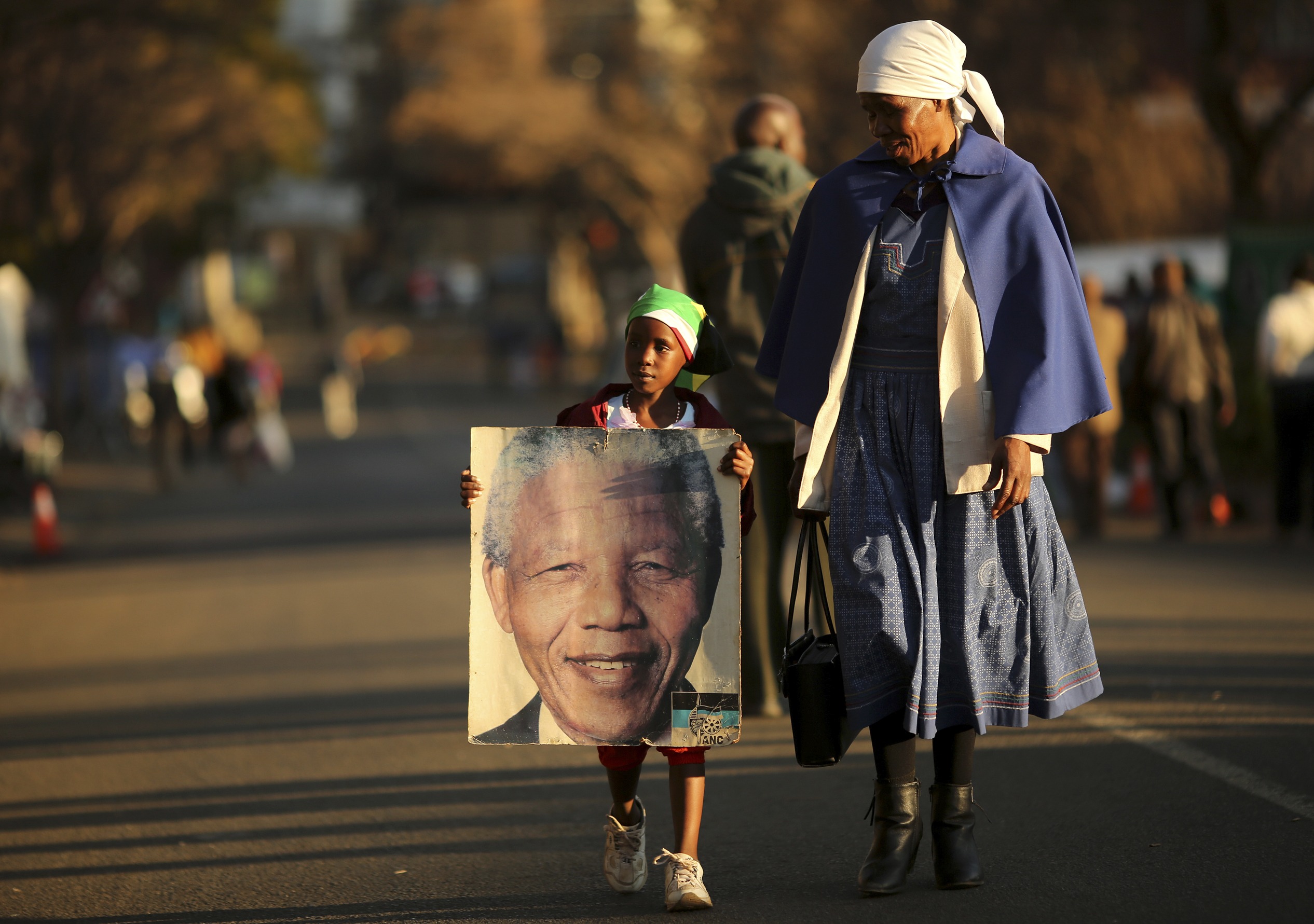JOHANNESBURG – Haunted by death during his long anti-apartheid struggle, Nelson Mandela looked toward his own "eternal sleep" as a man who fulfilled his duty to his people.
He was willing to die for democracy, the young black activist said during the 1963-64 trial that would send him to prison for 27 years.
"It is an ideal which I hope to live for and to achieve. But if needs be, it is an ideal for which I am prepared to die," he told judges of the white-minority apartheid regime.
Nearly 50 years later the 94-year-old is critically ill, fighting a stubborn pulmonary infection.
The country's presidency has prepared people for the icon's passing after his fourth hospitalisation this year.
"He never gave death a great deal of thought but he never wanted anything fancy," a family friend told the weekly Mail & Guardian.
A simple A4-page testament quoted in the paper asks a modest last resting place, true to the unpretentious image he cultivated from his presidency from 1994 to 1999.
He allowed himself one fantasy 10 years ago: fellow anti-apartheid fighter and political mentor Walter Sisulu welcoming him to paradise with mobilisation chants and an ANC enrolment form.
After leading South Africa to a peaceful transition and the first all-race elections in 1994, the Nobel peace laureate regarded his life task complete.
"When a man has done what he considers to be his duty to his people and his country, he can rest in peace," he said in 1996.
"I believe I have made that effort and that is, therefore, why I will sleep for the eternity."
Throughout his long imprisonment Mandela lost friends and family, often unable to say goodbye in person.
Already refused permission to attend his mother's funeral, he mourned his firstborn son Thembekile's death alone in his Robben Island cell in 1969.
"He was called to the office. We were all in the courtyard, but instead of coming back to us he went straight to his cell and got on his mattress," his old cellmate Ahmed Kathrada remembered years later.
"It was similar when his mother died. He just kept very quiet and mourned alone."
By 1987, feeling increasingly alone, Mandela became despondent.
"So many relatives and friends have died over these last twenty years, that it seems the world itself is dying," he wrote in a letter.
Today thousands of bouquets and Get Well cards at his Johannesburg house and hospital echo his eulogy at the burial of leader Joe Slovo in 1995.
"Men and women of rare qualities are few and hard to come by. And when they depart, the sense of loss is made the more profound and the more difficult to manage," he said.
Mandela will eventually rest surrounded by his family's remains, according to his cultural Xhosa nation's tradition.
"My family's here and I'd like to be buried here at home," he said at the Mandela cemetery in a 2003 documentary in his childhood village Qunu.
A row of trees surround the graveyard off the N2 highway in the rolling Eastern Cape province hills, around 500 metres (yards) from his house.
Simple headstones bearing the family name stand out from the yellowed grass.
In a 2006 documentary he was clear on how he wanted to be remembered.
"I would like it to be said that, 'Here lies a man who has done his duty on earth.' That is all."
























































